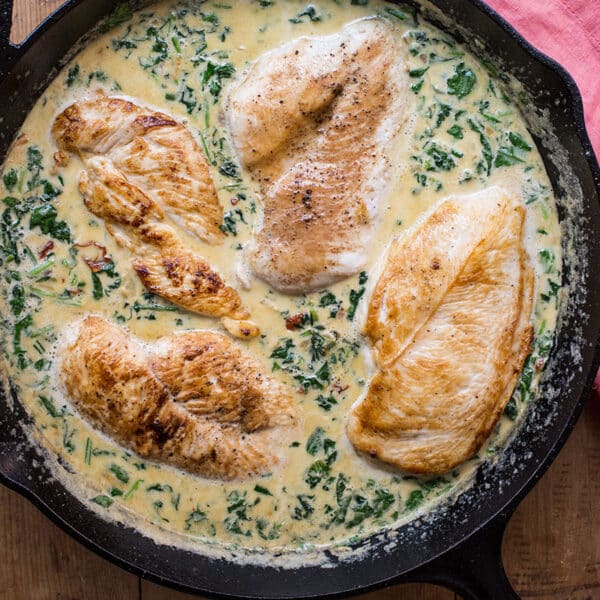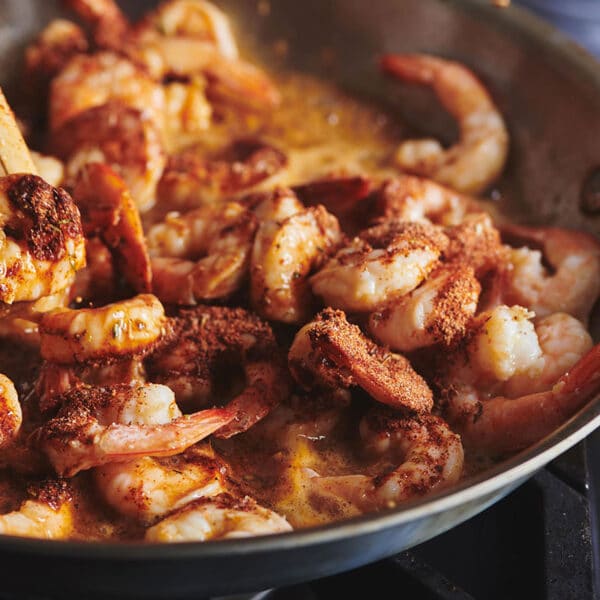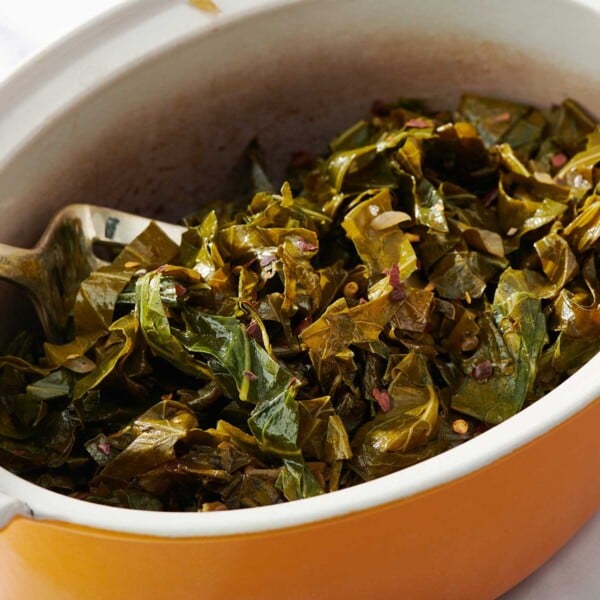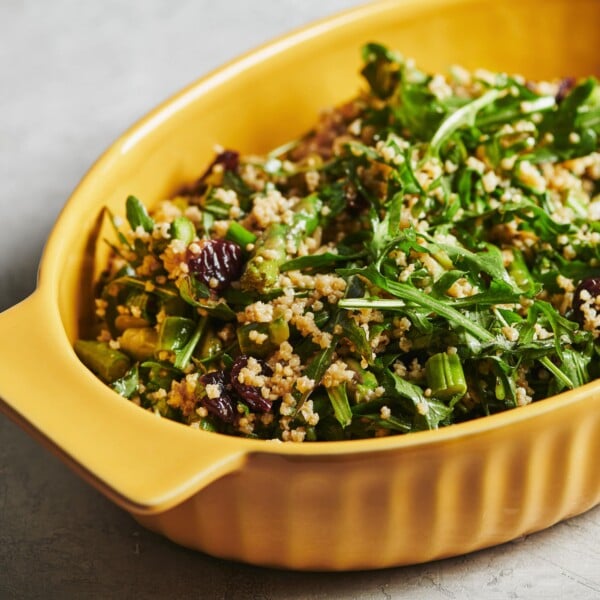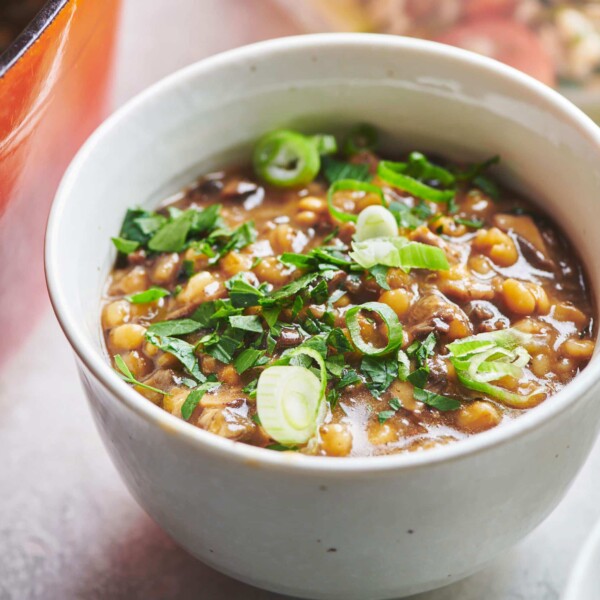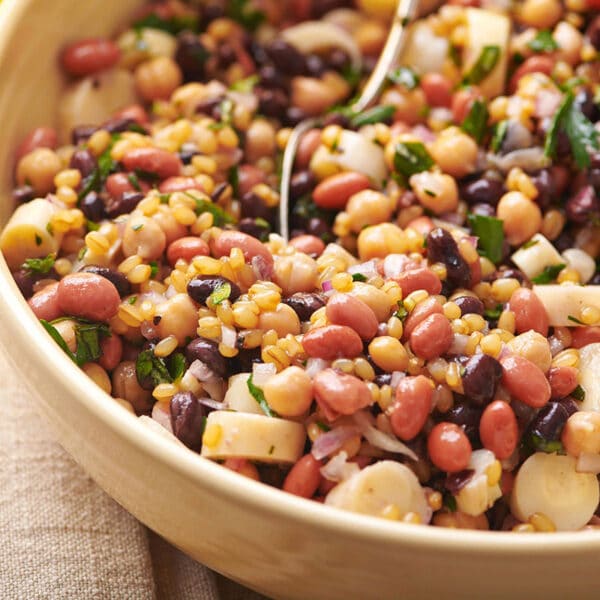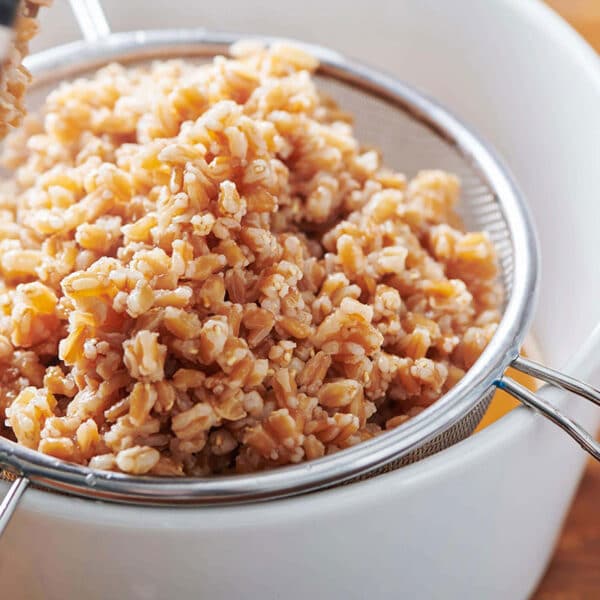How to Make Breakfast Grits
on Mar 23, 2022, Updated Oct 11, 2024
This post may contain affiliate links. Please read our disclosure policy.
Perfectly creamy but with great texture, grits are amazing for breakfast.
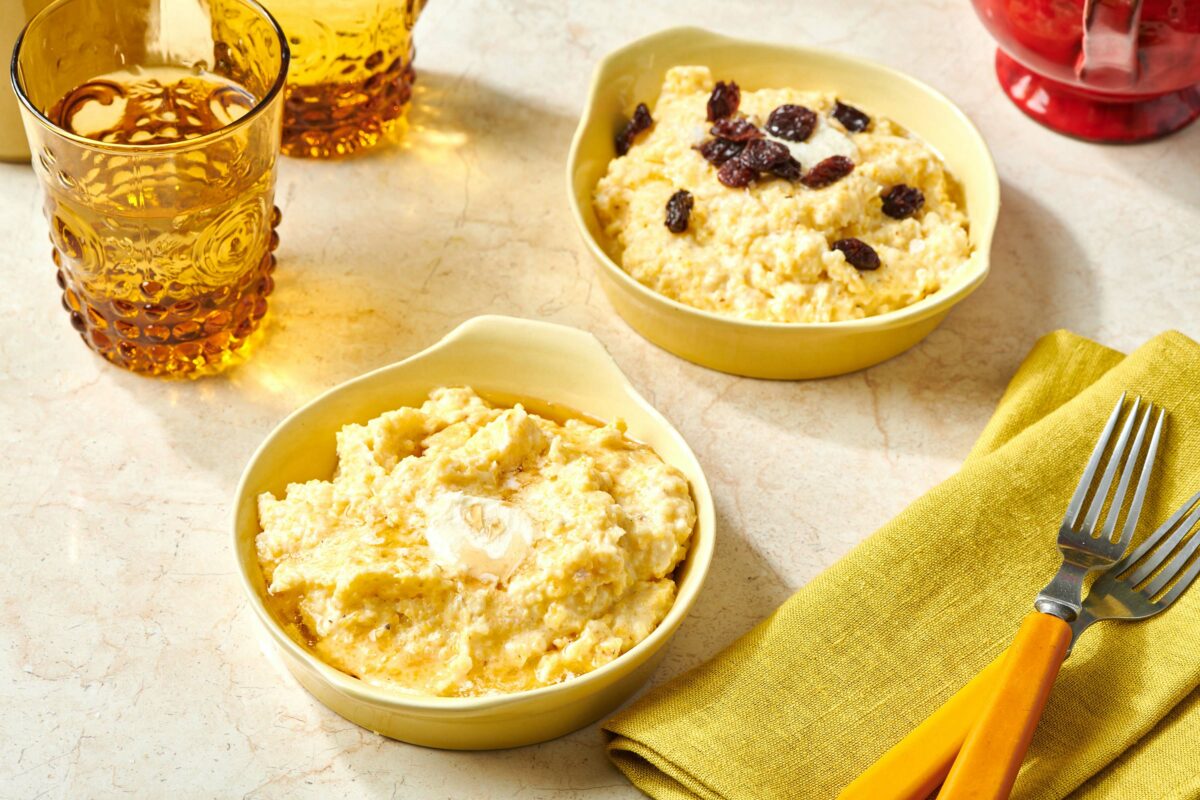
This is a basic recipe for breakfast grits with a hint of sweetness. Serve up these breakfast grits with some Perfect Scrambled Eggs and Leftover Turkey Hash. For more complex, savory grits, pair them with Creole shrimp.
Dora Charles, the author of A Real Southern Cook in Her Savannah Kitchen, says, “You dare not serve anyone in the South breakfast without some well-cooked grits.” She’s right. Down South, grits are served at meals all throughout the day — they snuggle up to seafood, soak up sauces, and take on copious amounts of cheese and herbs. Still, even among the many delicious varieties of grits, breakfast grits are a category unto themselves.
By signing up, you agree to our Privacy Policy.
What's In This Post?
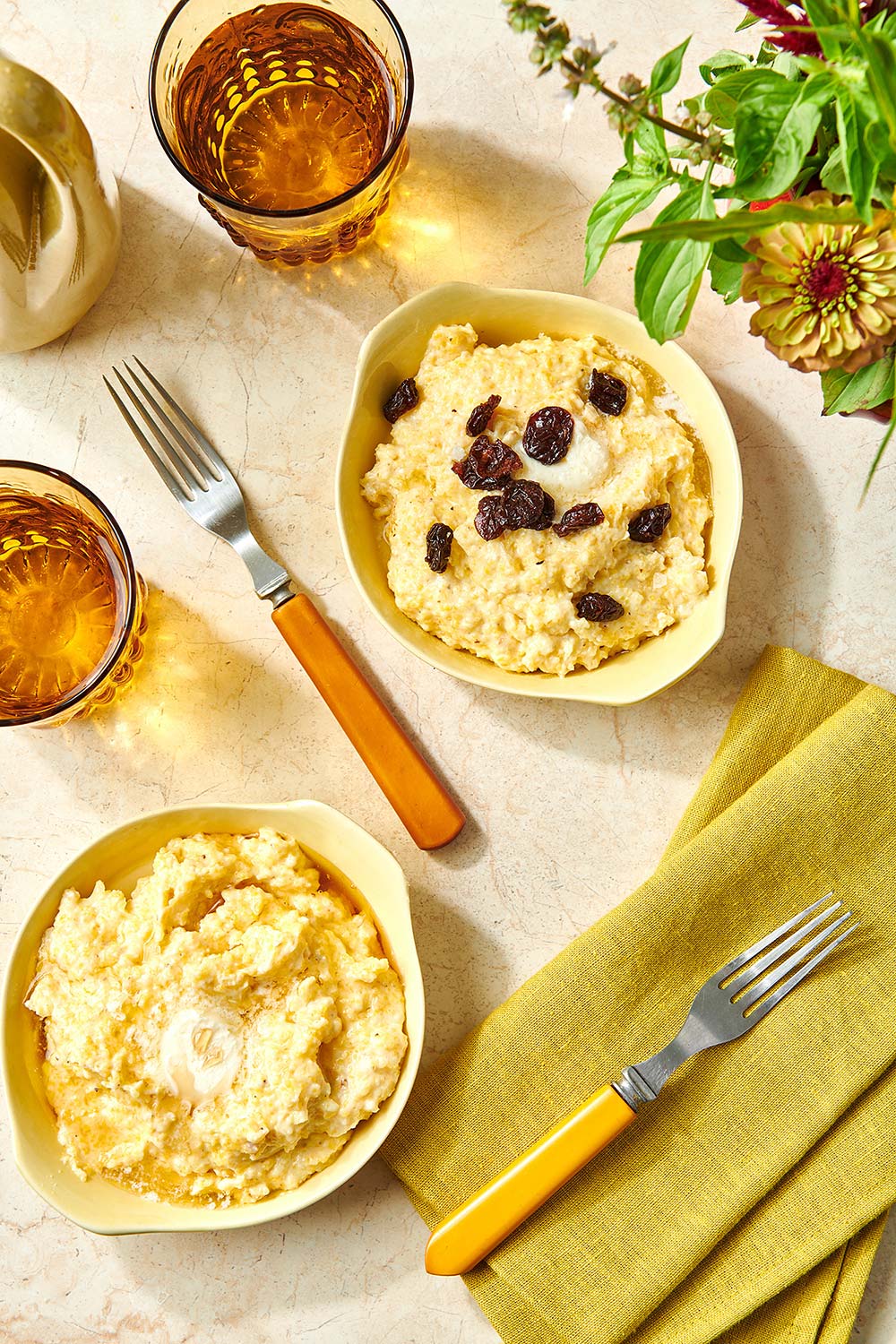
How to Make Breakfast Grits: Perfectly creamy but with great texture, grits are amazing for breakfast, topped with butter, salt, and whatever you like on your porridge!
Different Types of Grits
Grits can be either white or yellow, but the most important difference is how they are ground. Stone-ground grits are coarser and “grittier” than those produced in commercial mills. Commercially-produced grits, meanwhile, have a longer shelf life because the oils in the center of the grains are removed.
For the best quality, you should always try to buy stone-ground grits directly from the producer and then store them in the fridge or freezer. If that’s not possible, buy grits that are made by a company that knows their grits and from a store (either online or brick-and-mortar) with high turnover.
There are also differences in how quickly your grits can be cooked. Supermarkets offer instant grits, quick-cooking grits, and old-fashioned or regular grits. Instant grits are par-cooked (a.k.a. partially cooked), so they can be finished off in mere minutes. Most Southerners don’t consider them to be true grits, but they sure are good in a pinch.
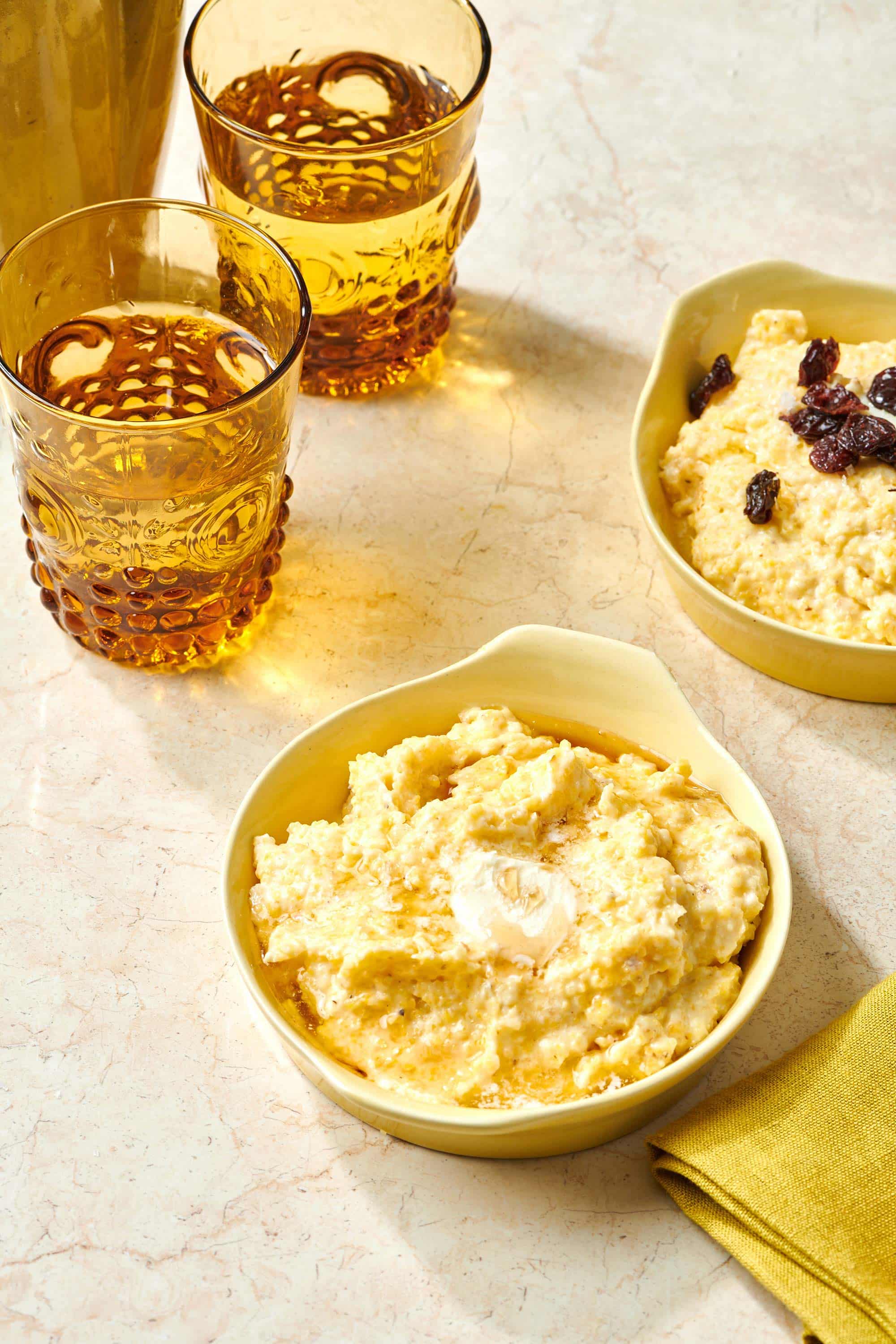
Quick-Cooking vs. Regular Grits
Quick-cooking and old-fashioned or regular grits both take longer to cook than instant, but the difference is substantial. Although the package for the quick-cooking grits may promise a shorter cooking time, most grits aficionados agree that to get the creamiest grits, you want to give them at least 1/2 hour so that they achieve maximum plumpness and smoothness.
Stone-ground grits might take up to an hour to get to their optimal creaminess, though there will still be a slightly rough texture thanks to the way the grains were milled between the stones.
Perfect Ratio of Water to Grits
The ratio of liquid to grits (whether that liquid is water, broth, or dairy) is about 4:1. You should also know that if you add other ingredients at the end, it might affect the texture one way or another. Cheese, for instance, will thicken grits, while butter will loosen them. You could skip the small amount of cream at the end but don’t unless you feel strongly about it.
How to Make Creamy Grits
- Add liquids to pan: Place the milk and water in a saucepan and bring to a simmer over high heat. Stir in the sugar and salt.
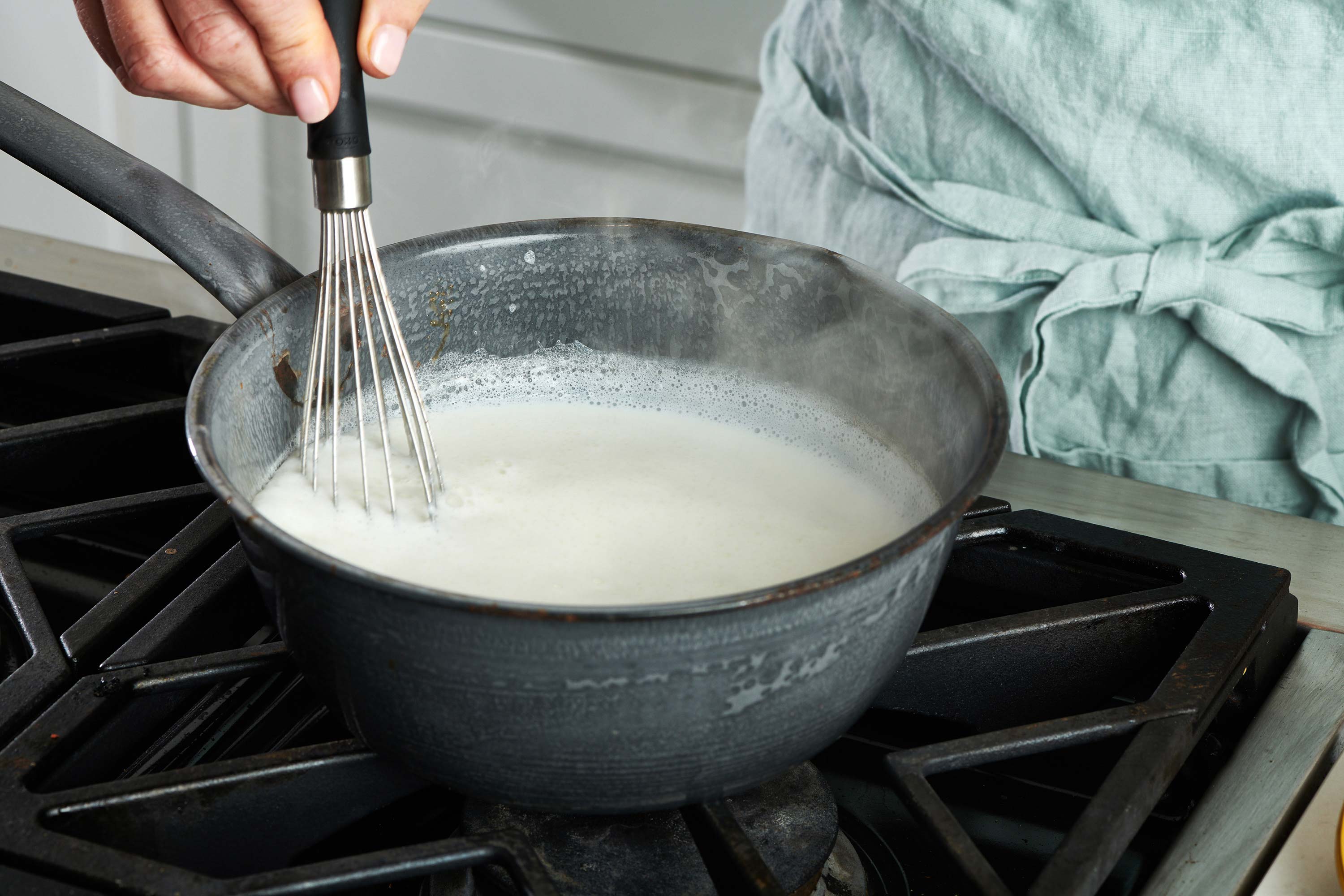
- Add grits: Slowly add the grits, stirring constantly.
- Simmer: Reduce the heat to medium-low and simmer, stirring frequently for about 30 minutes until the grits are smooth and creamy.
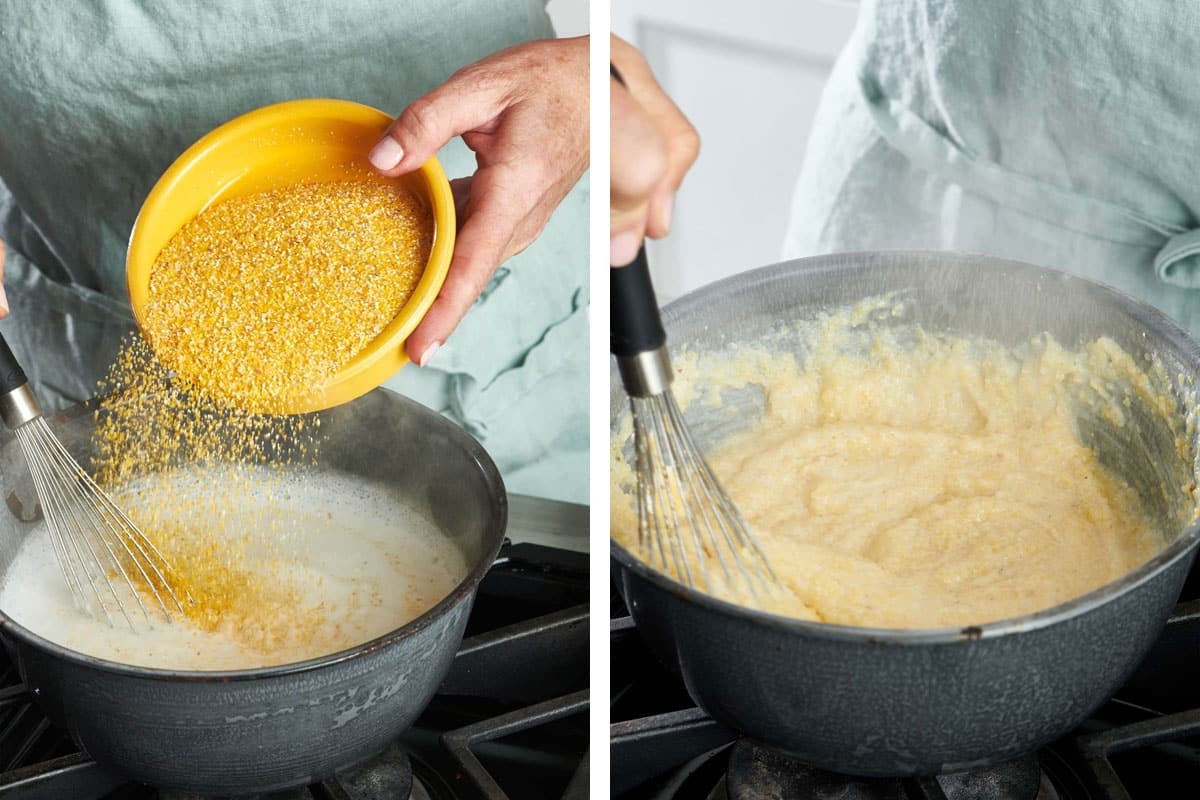
- Add fat: Stir in the butter and the heavy cream until the butter is melted and the mixture is hot and very creamy.
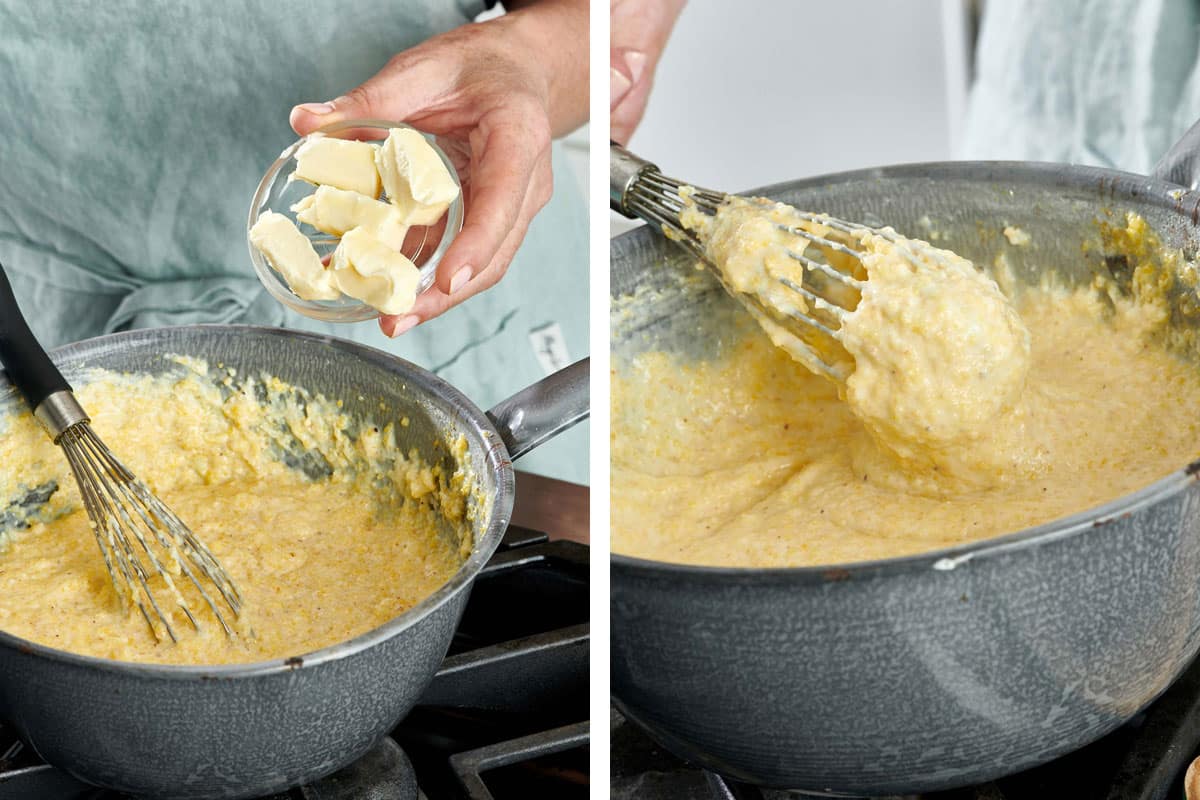
- Garnish and serve: Top as desired.
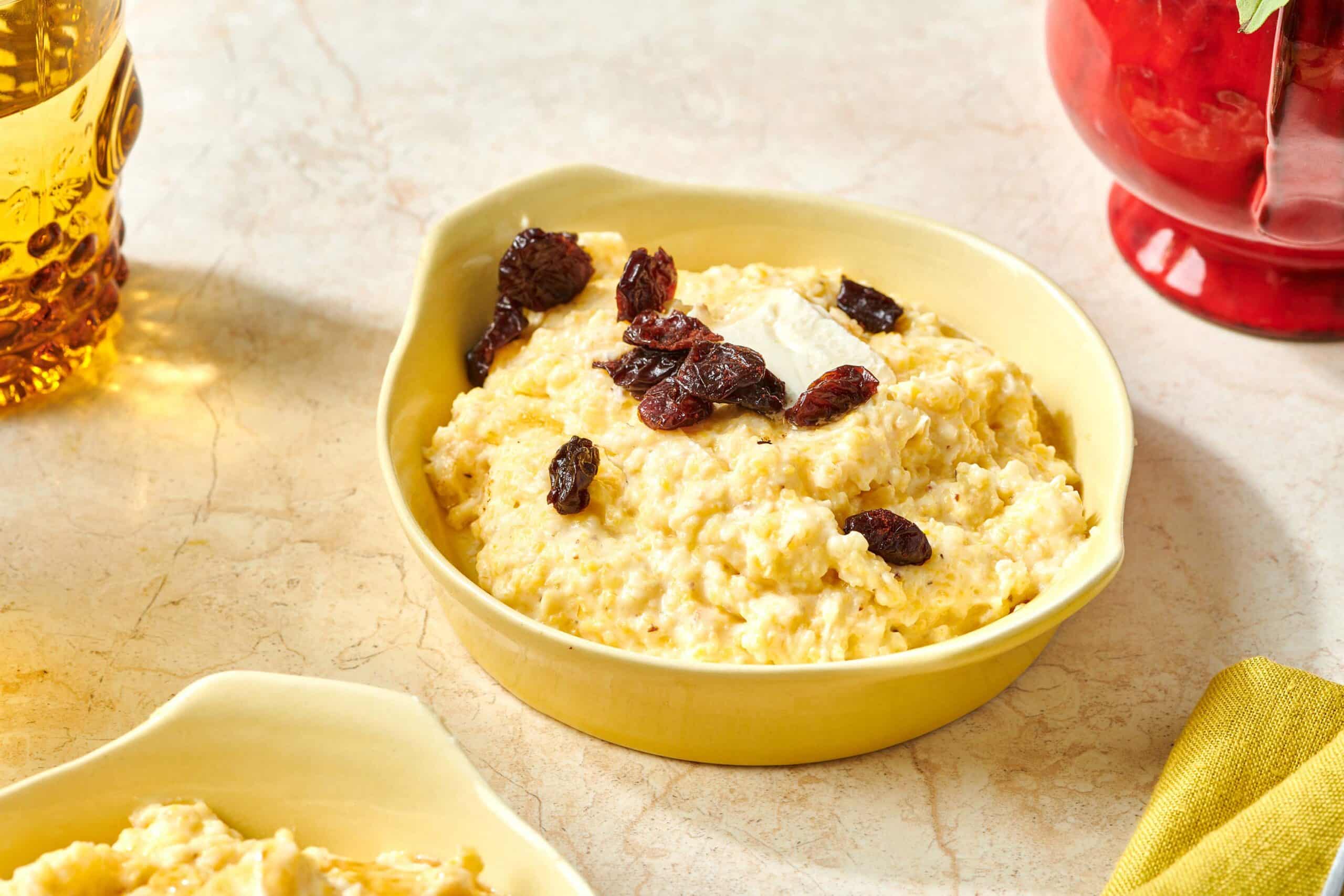
FAQs
You can absolutely just use water when making grits, as many Southern cooks do. Or you can use milk, half-and-half, cream, or broth. You can even come up with your own combo of the three liquids.
I like using a combo of milk and water for breakfast grits in particular, which makes them creamy and rich. And then, because I can’t resist, I often end with a generous glug of cream if I have it on hand (plus a bit of butter, of course). I usually save the broth for savory lunch or dinner preparations, also in combination with water.
A bowl of steaming grits needs nothing but a pat of butter melting into it to be perfect. But you can also top them with sorghum or maple syrup, honey, and dried or fresh fruit.
Dora Charles gives us another kind of obvious but also very important cooking tip: Fill the cooking pan with hot water the minute you’re done serving them, and by the time you’ve finished with the rest of the dishes, the pan will be ready to clean easily.
How to Keep Grits Warm
You can keep the grits warm in the covered pot over low heat; just give them a stir every once in a while to prevent them from sticking, and add a bit of hot water as needed to loosen them up. Double this recipe if you are having a bigger group. If you have double boiler, you can use that to keep the grits warm with less chance of burning the bottom (or make your own double boiler if you don’t have one. A slow cooker is also a great way to keep grits warm.
Reheating Grits
Leftover grits can be kept in the fridge for up to 3 days. Reheat leftovers in a pot over medium heat, stirring frequently and adding more water as needed to loosen them up.
Variations
- If you like your breakfast grits on the sweeter side, you can add more sugar.
- If you want to serve your grits as part of a more savory meal, you can leave out the small amount of sugar.
- You also might want to use water only, no milk, which is more common when the grits are being served as part of a lunch or dinner plate.
What to Serve With Grits
Breakfast grits don’t need much other than bacon and Scrambled Eggs. They’re also great with Leftover Turkey Hash.
If you make more savory grits, they’re amazing paired with all kinds of stews and saucy meals as a base or a side dish. Think of them as you would think of polenta (which are basically Italian grits) — so, hello, Creole shrimp and grits!
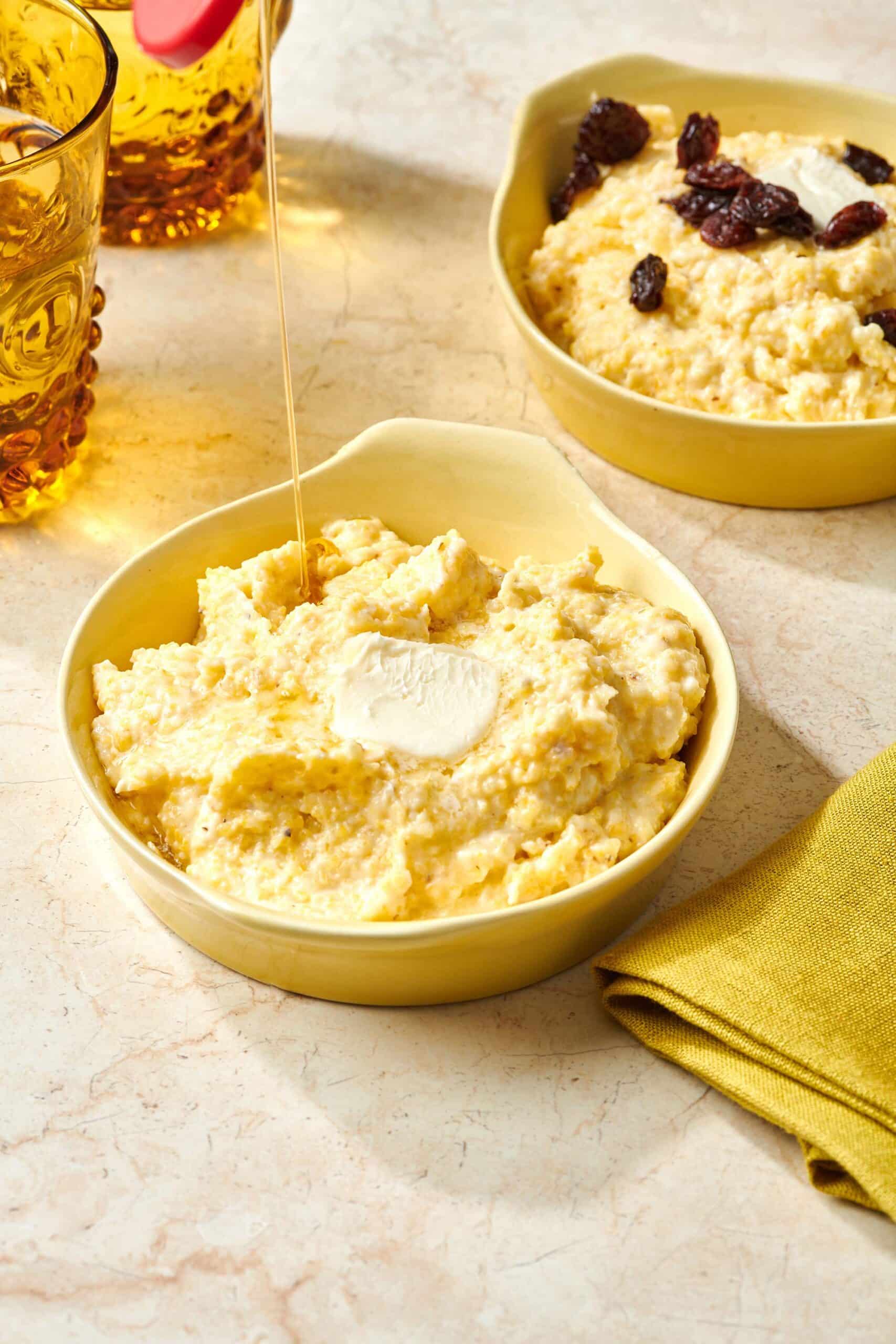
More Breakfast Recipes
Pin this now to find it later
Pin It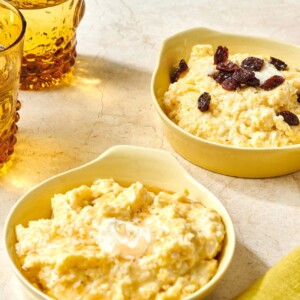
How to Make Breakfast Grits
Ingredients
- 2 cups whole milk
- 1 cup water
- 1 tablespoon sugar
- ½ teaspoon kosher salt
- ¾ cup quick-cooking or regular (“old-fashioned”) grits (not instant)
- 3 tablespoons unsalted butter (cut into pieces)
- ½ cup heavy cream
To Serve:
- Butter, sorghum or maple syrup, honey, dried or fresh fruit
Instructions
- Place the milk and water in a saucepan and bring to a simmer over high heat. Stir in the sugar and salt. Slowly add the grits, stirring constantly. Reduce the heat to medium-low and simmer, stirring frequently for about 25 to 30 minutes until the grits are smooth and creamy.
- Stir in the butter and the heavy cream until the butter is melted and the grits are hot and very creamy.
Notes
- You can keep the grits warm in the covered pot over low heat; just give them a stir every once in a while to prevent them from sticking, and add a bit of hot water as needed to loosen them up. Double this recipe if you are having a bigger group. If you have a double boiler, you can use that to keep the grits warm with less chance of burning the bottom (or make your own double boiler!). A slow cooker is also a great way to keep grits warm.
- Reheat grits in a pan over medium-low heating, stirring frequently until hot and adding more water to loosen them up as needed.
- If you like your breakfast grits on the sweeter side, you can add more sugar.
- If you want to serve your grits as part of a more savory meal, you can leave out the small amount of sugar.
- You also might want to use water only, no milk, which is more common when the grits are being served as part of a lunch or dinner plate.
